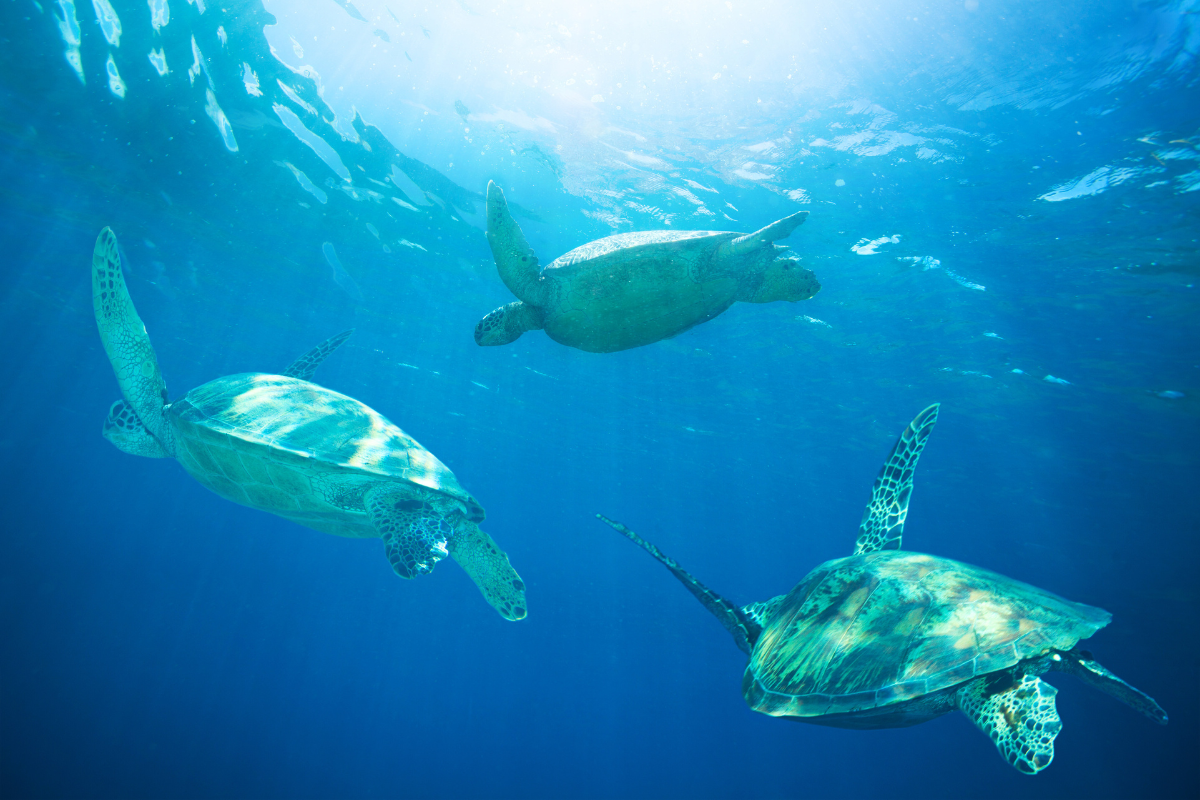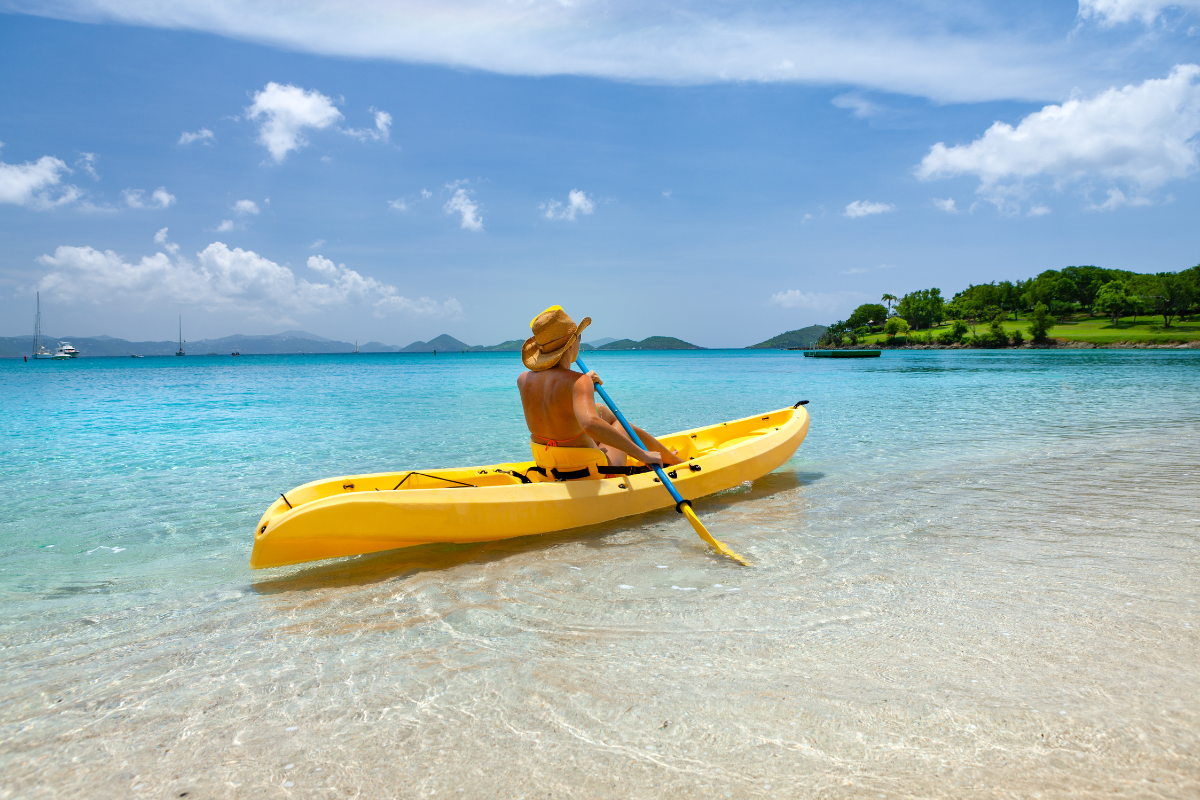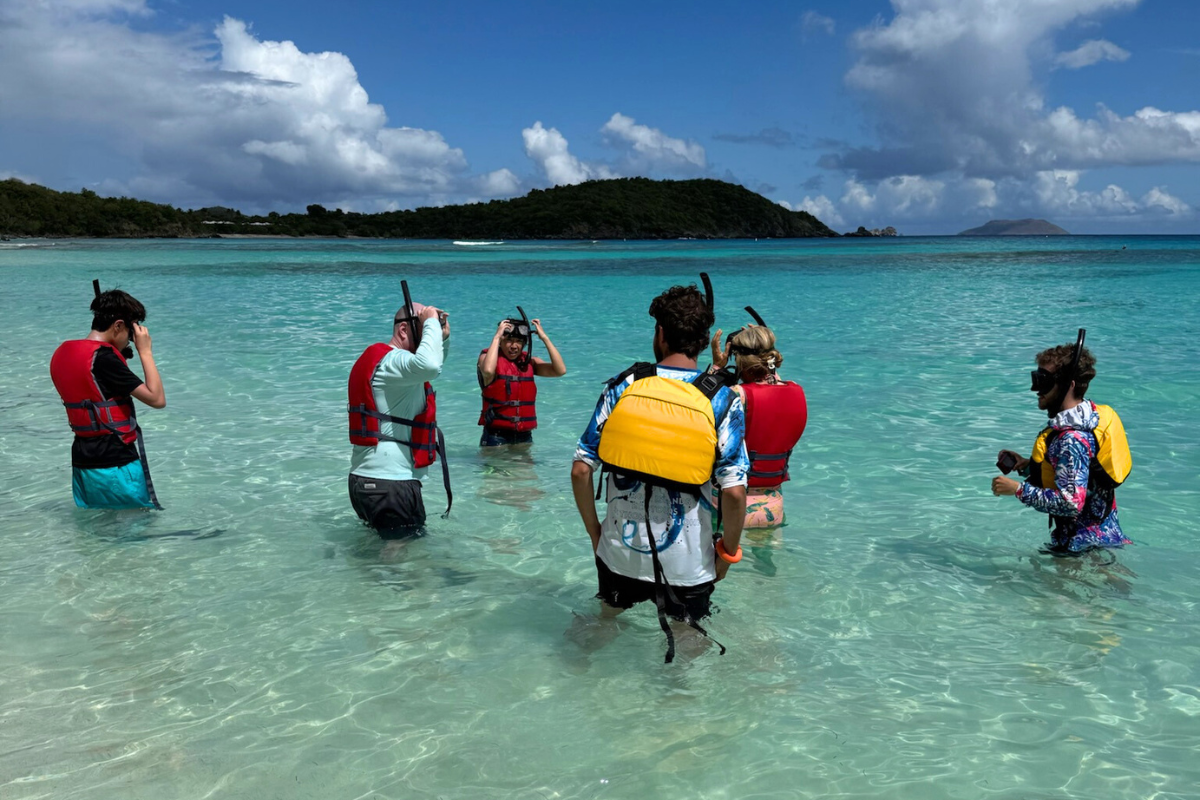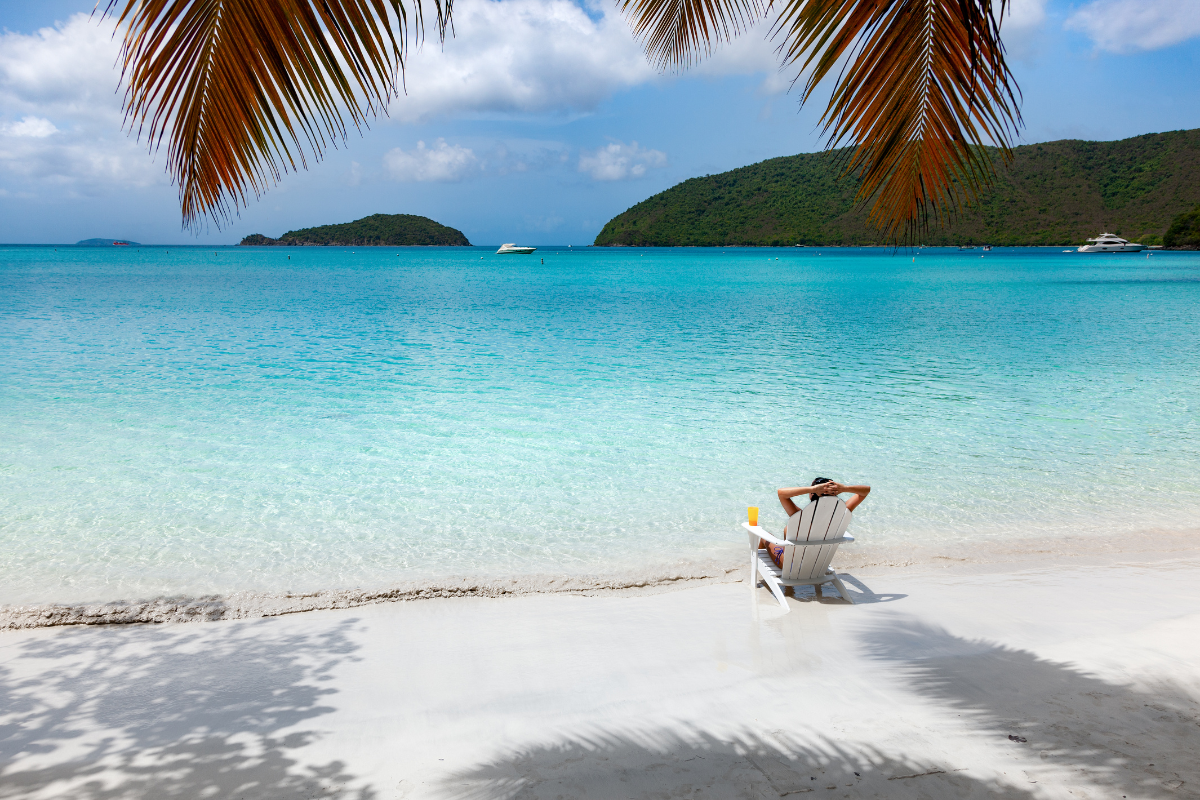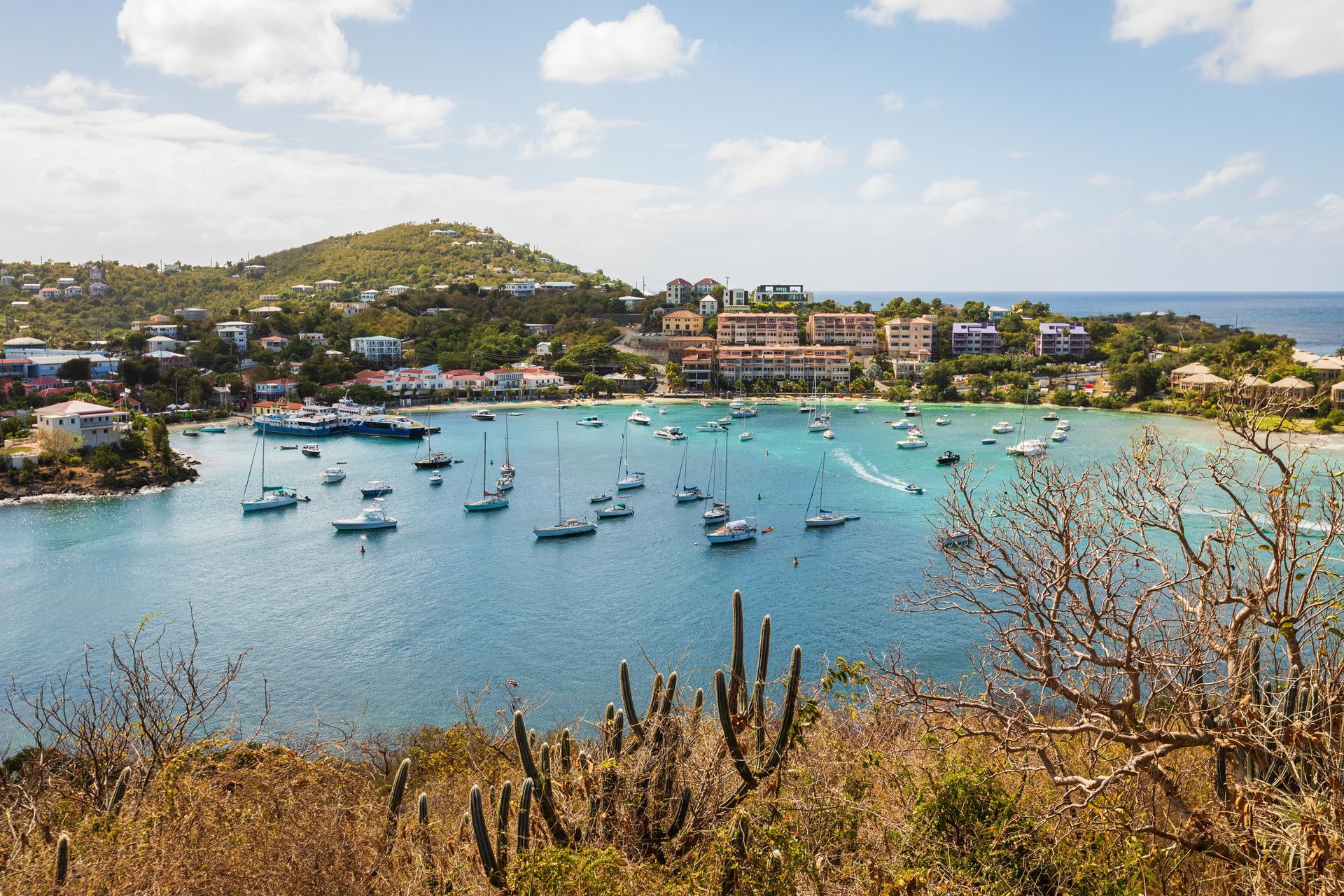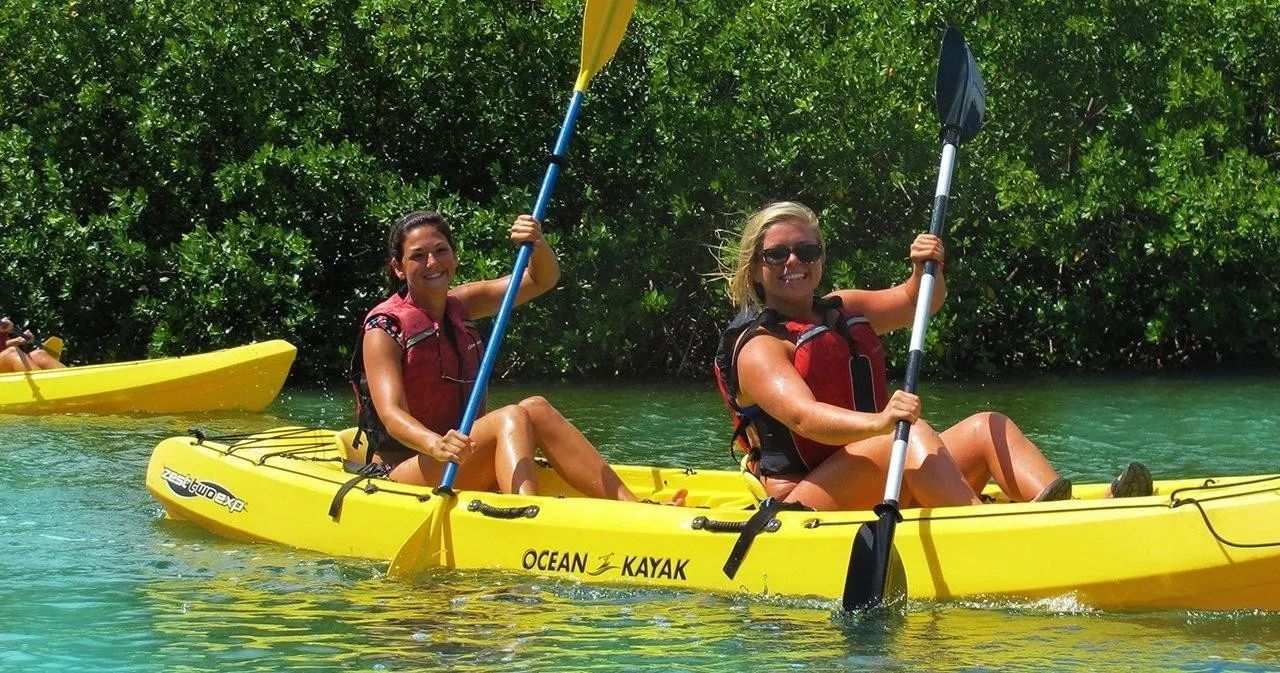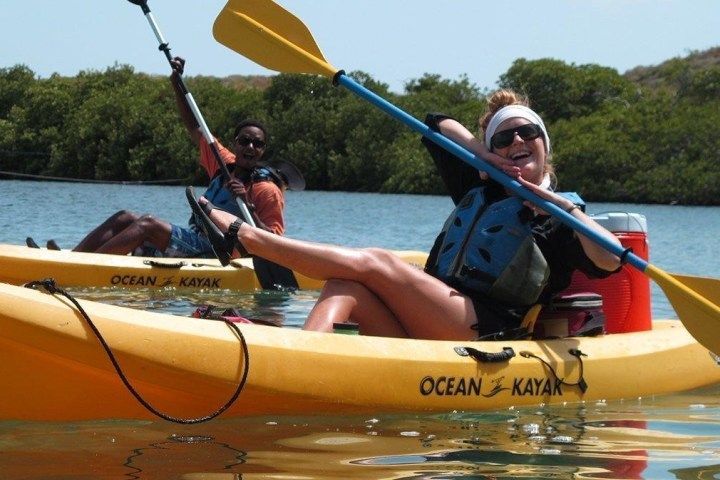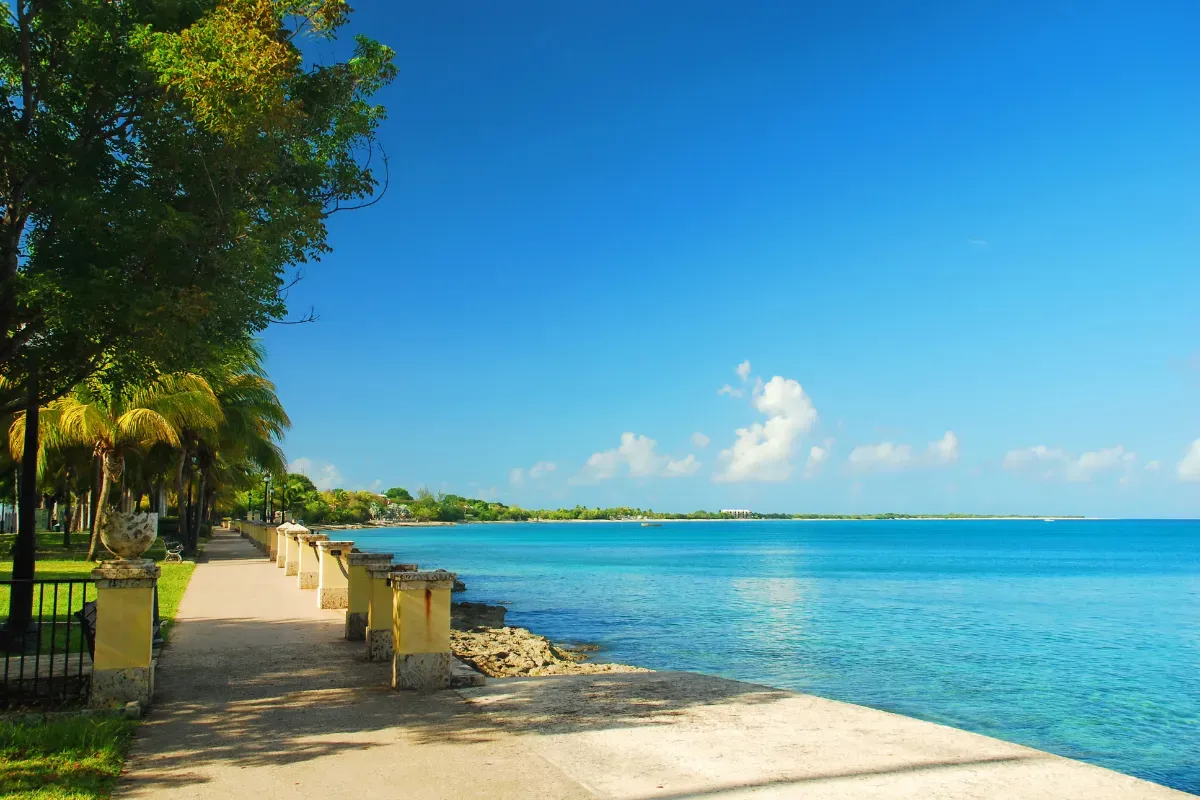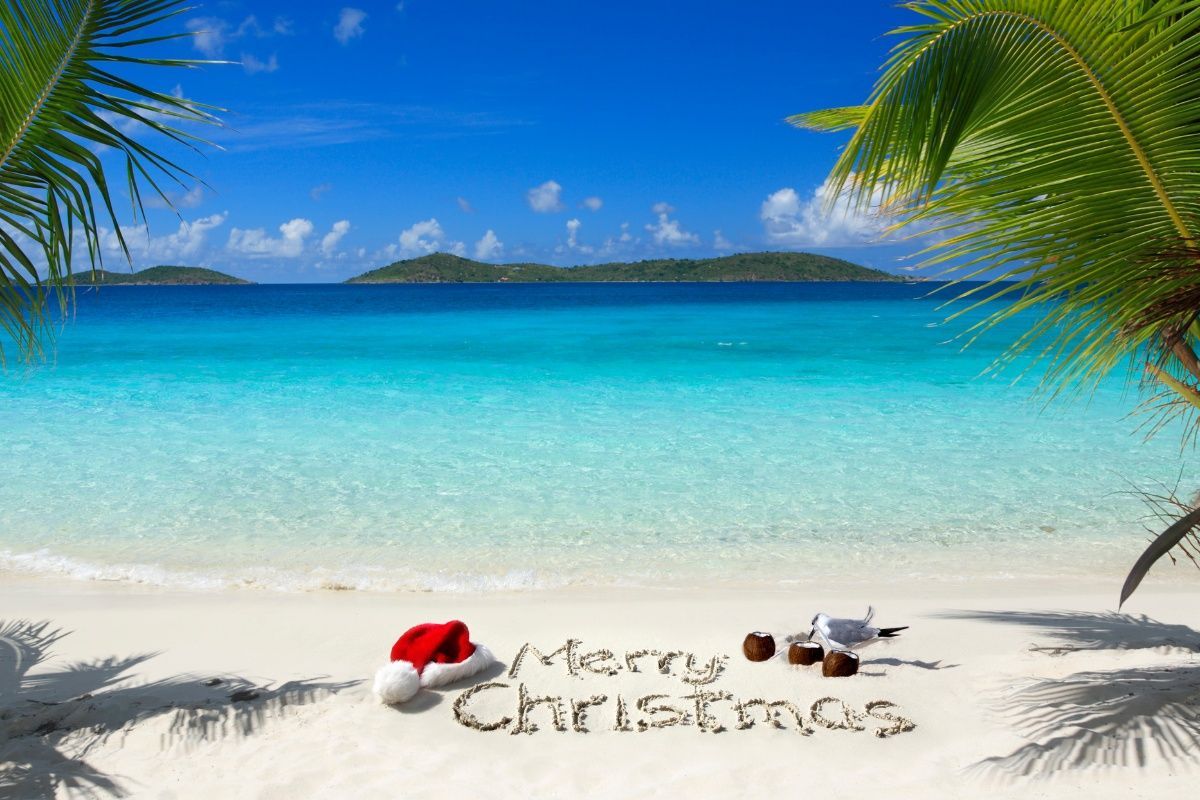SNORKEL, SNUBA, OR SCUBA: WHICH ONE IS RIGHT FOR ME?
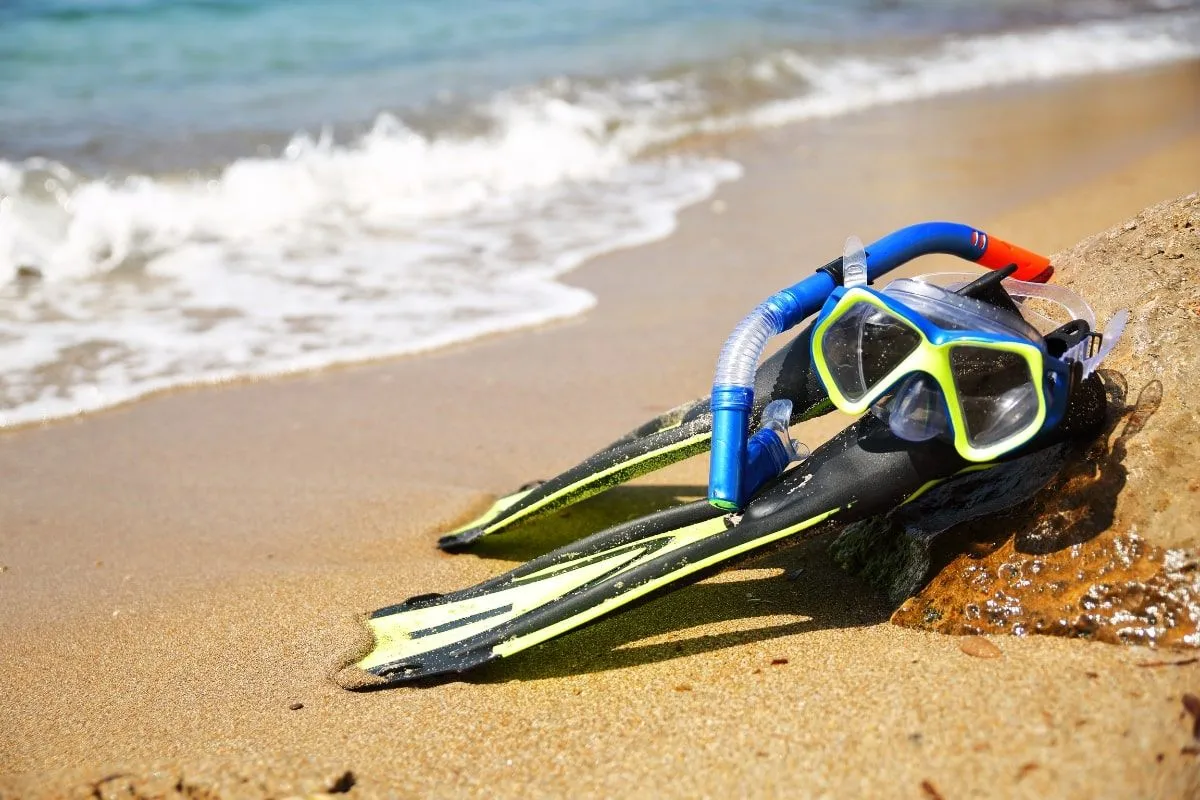
Are you interested in exploring more of our underwater world, but aren’t sure which way is best for you to access it? Should you snorkel? Or try snuba? Or would scuba diving be the best fit for you?
Here are a couple of things to consider when choosing, along with a brief explanation of each option (because hardly anyone knows what snuba is anyway!).
SHOULD I SNORKEL?

Snorkeling is the most popular way to see the underwater landscape in the Virgin Islands. Snorkeling in the USVI is accessible to almost everyone, regardless of age or physical capability. Even if you’re not a strong swimmer, you can wear a life jacket and use a noodle to help you stay afloat while you enjoy the scenery below. No experience or special certification is required.
Snorkeling takes place on the surface of the water. Thankfully, the waters of St. Thomas and St. John are relatively shallow, calm, and very clear which means you can still see a lot of life by just dipping your head in from above.
When snorkeling, you breathe through a tube – a snorkel – that sticks out above the surface of the water. For first timers, it can take a few minutes to get used to the sensation of breathing through your mouth only, but you will get the hang of it quickly.
Equipment: Face mask, snorkel, fins, and life vest/floatation device (optional)
How to participate: We have an array of snorkeling tours available. You can snorkel from the shore, from a kayak, or from a boat; all options have a unique experience to offer. We also have snorkel gear available to rent, if you would prefer to explore on your own.
Know before you go: Your main limitation in snorkeling is that you can only go so deep, since you need to stay at the surface to breathe.
SHOULD I SNUBA?
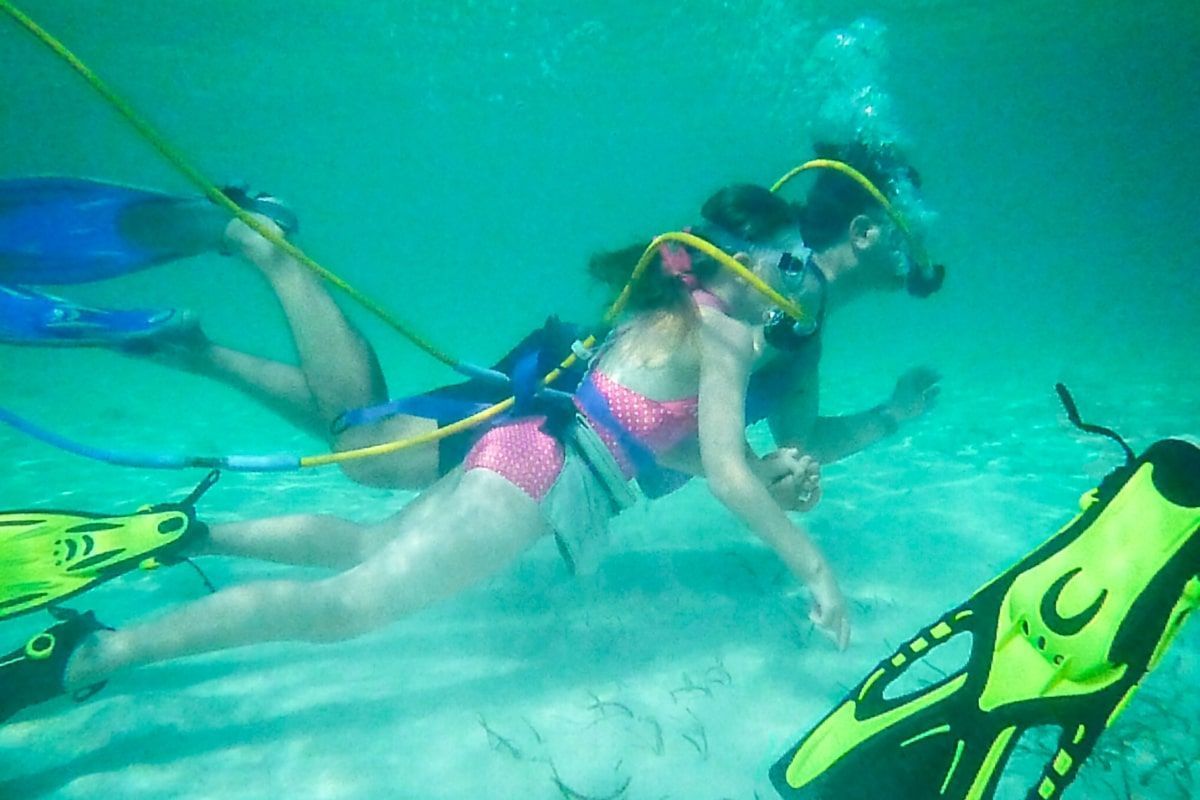
Snuba is a blend between snorkeling and scuba diving. It is a relatively new sport on St. Thomas that has brought flexibility to those who may not be ready to “dive in” to scuba diving yet, but want to go beyond the limits of the surface that they’ve enjoyed while snorkeling.
There is no special certification required to try snuba, and a guide stays with you the entire time. The main bonus with snuba is that you get a constant stream of air without having to wear a heavy air tank on your back.
When snuba-ing, you breathe through a regulator in your mouth which is attached to the airline connecting you to the compressed air tank at the surface.
Equipment: Face mask, snorkel, fins, weight belt, and snuba harness (which connects your airline to the boat/float at the surface).
How to participate: You can reserve your snuba excursion here on our website. The activity takes place at Coral World.
Know before you go: Snuba is currently only available to partake in on St. Thomas. Your depth is limited by the length of the airline, typically no more than 20ft.
SHOULD I SCUBA?
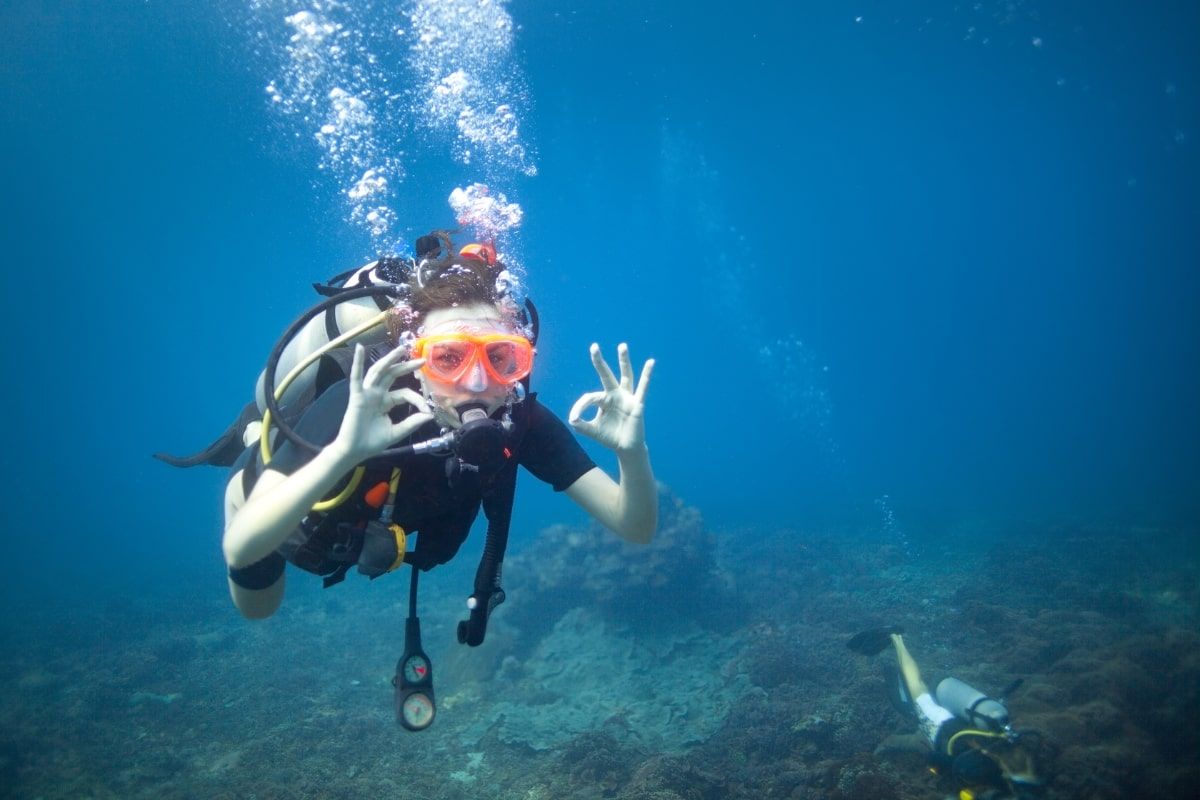
Scuba diving is the ultimate way to immerse yourself under the sea. While most of the dives in the US Virgin Islands are relatively shallow (anywhere between 20-50ft), there is so much to see when you’re able to breathe calmly with your air tank and really focus on the sea life in front of you without having to quickly return to the surface.
The USVI boasts many incredible dive sites from reefs, to caves, to wrecks. Scuba diving lets you get up close and personal, noticing things you’d miss while snorkeling from higher up.
When scuba diving, you breathe compressed air from a tank attached to your back. Most dives last anywhere from 20 – 40 minutes.
Equipment: Face mask, snorkel, fins, weight belt, BCD vest, regulator, depth gauge, and air tank
How to participate: You can reserve all types of scuba on our website. Whether you’re just starting out, need a refresh, or are already certified and want to head out diving for the day.
Know before you go: While you can try out scuba diving with a short crash course called, Discover Scuba, you will need to get officially certified if you plan to go diving beyond your Discover lesson.
We hope that helps answer your questions and gives you some guidance in making the choice that is right for you. If there’s more you’d like to know, please don’t hesitate to contact us directly – we’re here to help!
You May Also Like
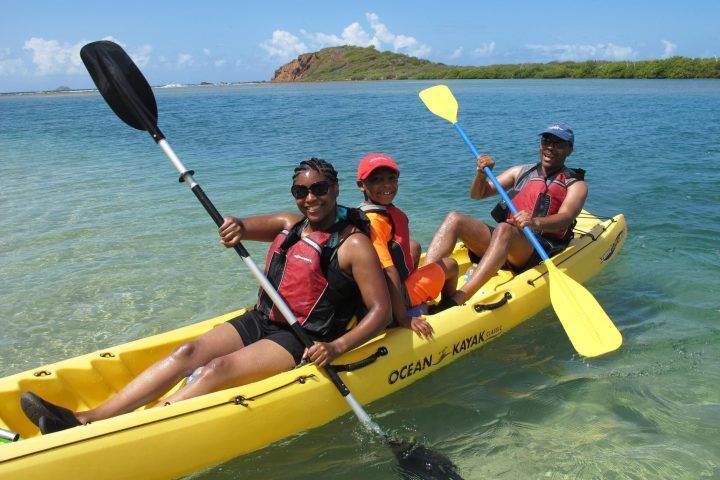
Cas Cay Kayak, Hike & Snorkeling Ecotour
St. Thomas
3 Hours
Embark on an exclusive morning adventure through the serene beauty of Cas Cay, where tranquil mangroves, vibrant marine life, and breathtaking volcanic vistas await—discover this hidden gem with knowledgeable guides.

St. John
3 Hours
Hike & Beach Adventure Tour: Discover Honeymoon Beach on St. John
Looking to pack a BIG experience into a short amount of time? Then we’ve got just the adventure for you! This tour is designed for groups of 4 or more.
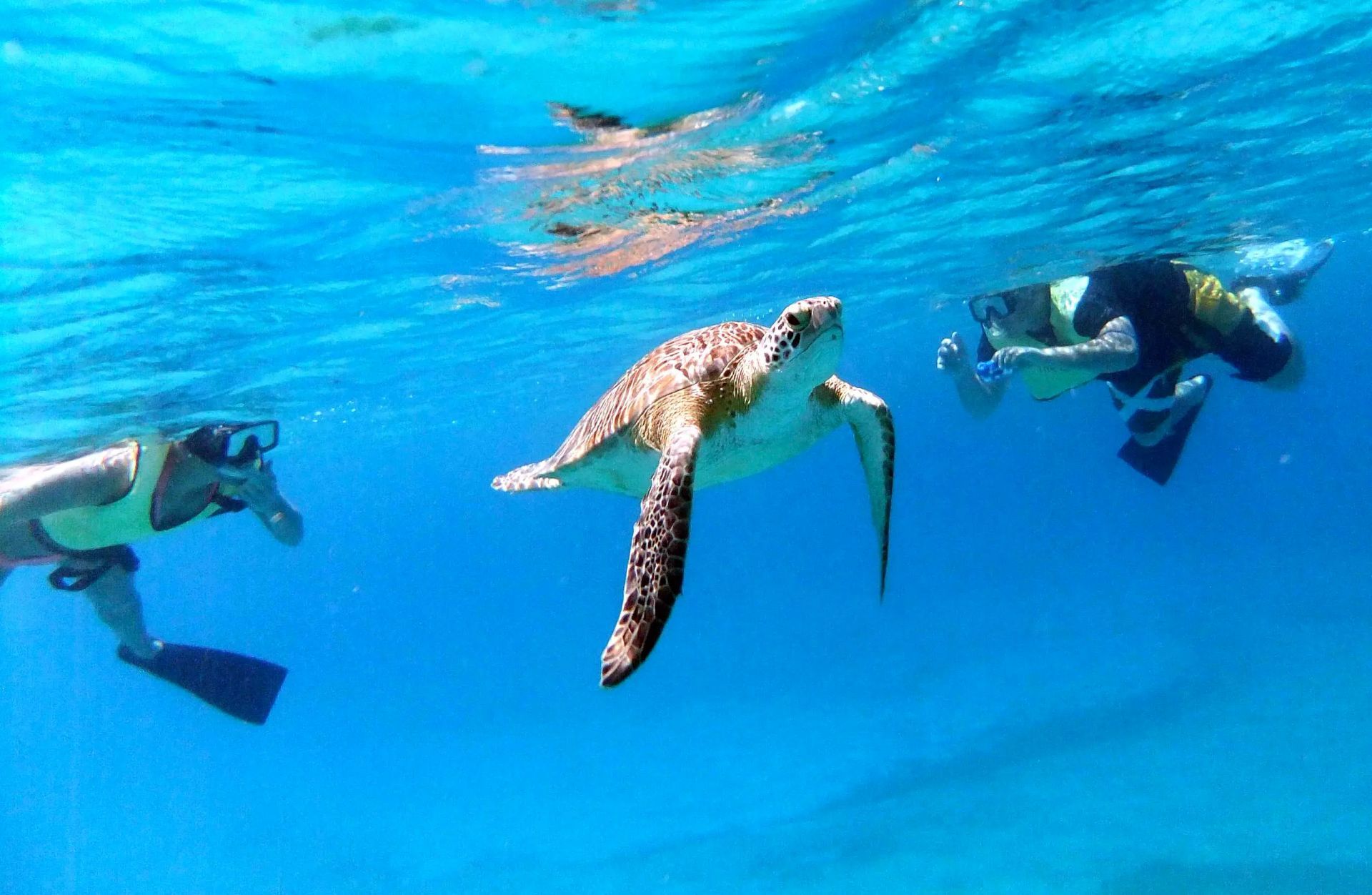
Swim alongside graceful Hawksbill and Green Sea Turtles in the crystal-clear waters of St. Croix on this unforgettable guided snorkel tour. Explore vibrant coral reefs and encounter diverse marine life with expert guides ensuring a safe and memorable experience. Perfect for all skill levels, this unique adventure offers an up-close look at St. Croix’s stunning underwater world—an experience you’ll never forget.
St. Croix
1.5 Hours

